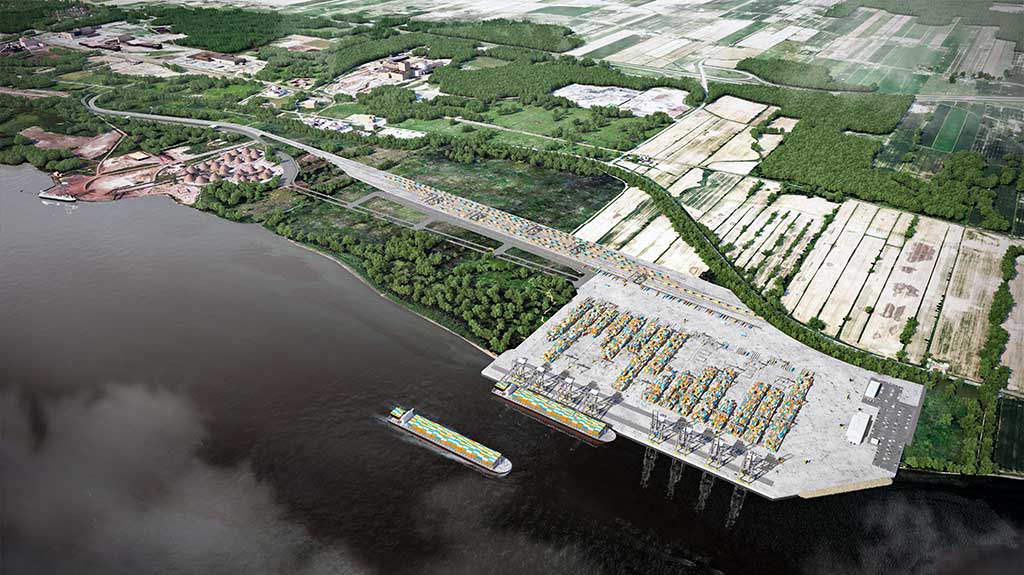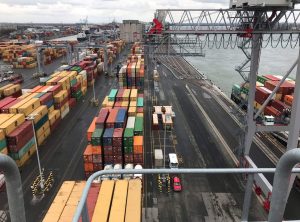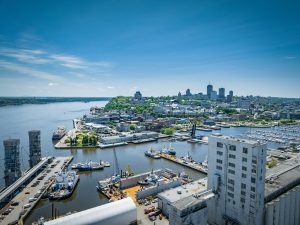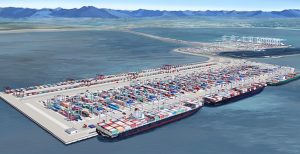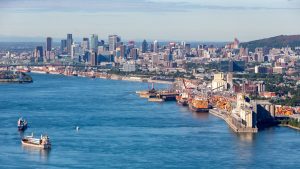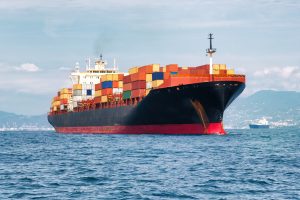By Leo Ryan, Editor
The Port of Montreal today staged a technical briefing during which it updated the procurement process for a major container terminal project at Contrecoeur, 40 kms downstream on the St. Lawrence River. Now slated to become operational by late 2026 after receiving federal government regulatory approval and substantial financial support, the terminal able to handle 1.15 million TEUs will boost the port’s capacity from 2.1 million TEUs to 3.5 million TEUs. Actual construction would begin in 2023.
Accompanied by consultant Tony Boemi, former VP Growth and Development of the Montreal Port Authority, Paul Bird, Vice-President Contrecoeur, outlined the two-stage Design-Build-Finance-Operate-Maintain (DBFOM) procurement process for potential international and domestic bidders.
The Request for Qualification (RFQ) is scheduled to be launched on November 23 and is expected to be in market for three months. The RFQ will qualify a maximum of three respondents.
A Request for Proposals (RFP) is scheduled to be issued on Q2 2022 and is expected to be in market for nine months. The RFP will result in the selection of one successful proponent to design, build, finance, operate and maintain the Contrecoeur terminal.
Mr. Bird said that the eventual strategic partner “must share the same values as the Montreal Port Authority.”
Among the partner’s responsibilities: strong connections with shipping companies committed to bring new business to Eastern Canada’s leading container gateway; strong interest in innovation and efficiency; strong focus on good community relations; strong environmental and sustainable development approach.
Mr. Bird stressed Montreal’s strength as a destination port driven by fully-loaded ships in and out. The largest containerships cannot service Montreal due to draft restrictions. But Post-Panamax containerships can access Montreal, and Montreal handles twice as many containers per trip as vessels on “milk runs” through the US East Coast ports: 4250 versus 2,180.
Anticipated capital expenditure for Contrecoeur is C$950 million. This translates into an estimated low cost of C$826 (US$652) per container, Mr. Bird pointed out.
The project has received $300 million in long-term, low-rate financing from Canada Infrastructure Bank and a $55 million grant from the Quebec government. Its completion would bring to six the number of container facilities at the Port of Montreal.
“There is room for (capacity) growth in response to demand,” Mr.Bird said. In this regard, Mr. Boemi suggested that existing facilities will be approaching full capacity within a few years.
Between 2015 and 2019, Montreal’s container cargo grew from 13 million tonnes to 15.1 million tonnes (1.75 million TEUs). Main markets are central Canada and the US Midwest. (photo MPA)


